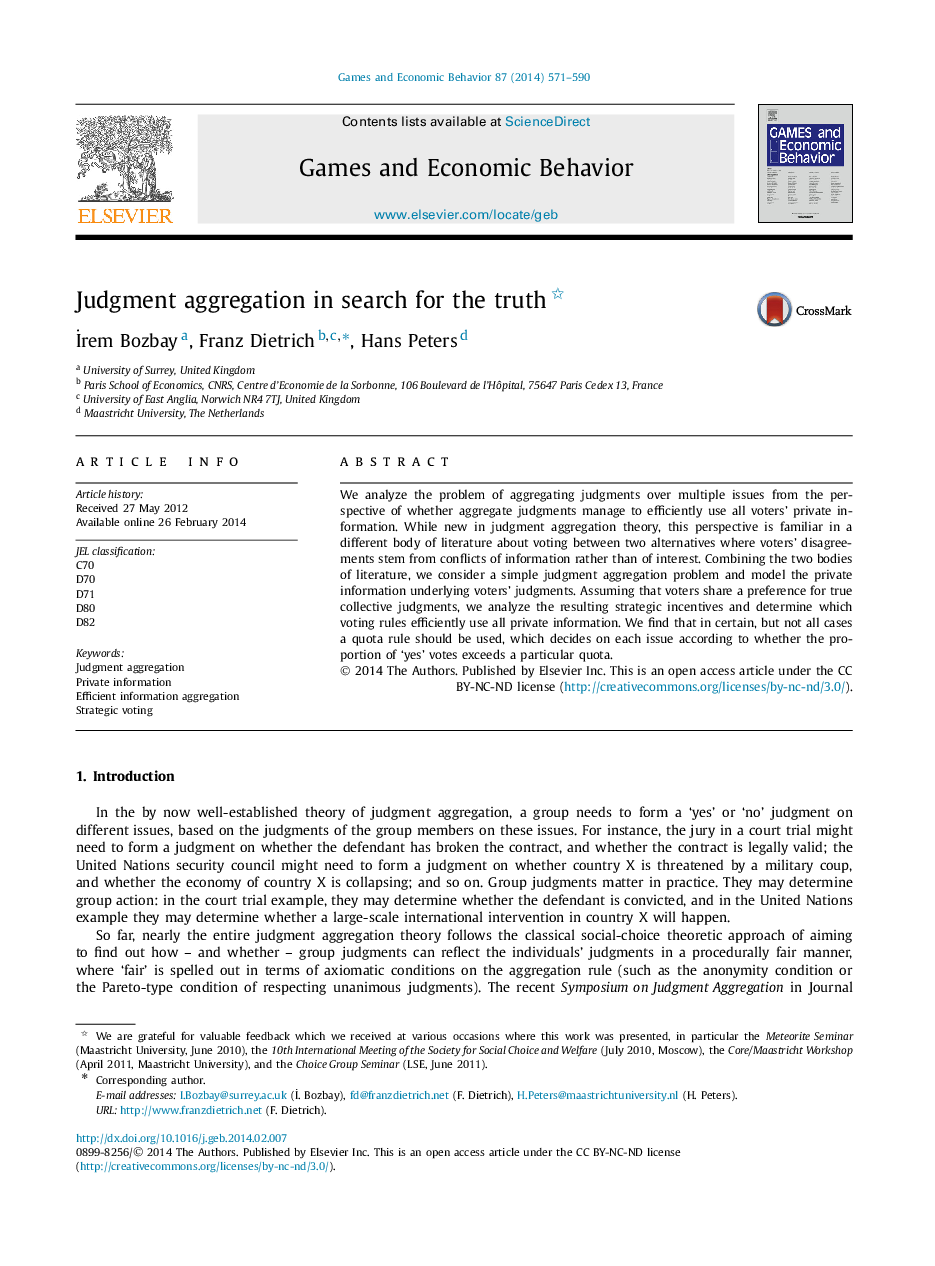| Article ID | Journal | Published Year | Pages | File Type |
|---|---|---|---|---|
| 5071875 | Games and Economic Behavior | 2014 | 20 Pages |
â¢A group aggregates judgments on binary issues, aiming for true collective judgments.â¢We model the private information underlying each voter's judgments.â¢Voters may vote strategically in spite of all aiming for true collective judgments.â¢We determine the voting rules that lead to efficient information aggregation.â¢These voting rules are sometimes quota rules, based on acceptance thresholds.
We analyze the problem of aggregating judgments over multiple issues from the perspective of whether aggregate judgments manage to efficiently use all voters' private information. While new in judgment aggregation theory, this perspective is familiar in a different body of literature about voting between two alternatives where voters' disagreements stem from conflicts of information rather than of interest. Combining the two bodies of literature, we consider a simple judgment aggregation problem and model the private information underlying voters' judgments. Assuming that voters share a preference for true collective judgments, we analyze the resulting strategic incentives and determine which voting rules efficiently use all private information. We find that in certain, but not all cases a quota rule should be used, which decides on each issue according to whether the proportion of 'yes' votes exceeds a particular quota.
